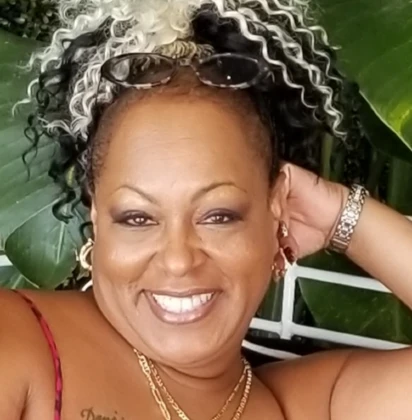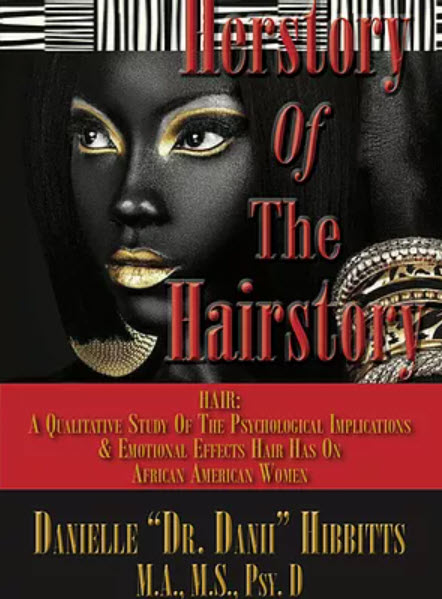Danielle Hibbitts
Biography of Danielle Hibbitts
Danielle “Dr. Danii” Hibbitts
I am a licensed cosmetologist over 35 years, now clinical and forensic psychologist. I wrote my dissertation, and I conducted research covering the psychological and emotional effects hair has on Black and multiracial women. I am in no way suggesting that my research covers all Black or Multi-racial women and their hair experience. However, I am suggesting that there are many similarities in the “hairstories” that these women have in common. There is a universality of hair dissatisfaction that exists all over the world regarding the herstories of the Black hair experiences.
These Black hair experiences have created issues that impact the self-identity, self-esteem, self-worth, and core values of these women simply created by the internal dialogue of wearing their naturally grown virgin hair. The CROWN of glory that adorns our diverse hues of radiant skin tones, complexions, and the textures of our curly tresses’ are something we were blessed with at birth. Women are becoming aware that we are more valuable than our outer appearance. We are no longer accepting nor tolerating racial, and hair discrimination based on the hair we grow naturally. We are no longer trying to conform nor assimilate to standards of beauty that don’t represent us. In my book entitled Herstory of the Hairstory I cover what I see as the background of the problem, which is that mainstream beauty standards do not represent the esthetics of Black women.
I share what microaggressions in the workplace look like, and why it is inappropriate for white colleges to ask if they can touch our hair, or how did it grow overnight? Is that your real hair? These brief everyday slight insults, indignities, and denigrating messages are sent to women of color, by well- intending white people who are unaware of the hidden messages being communicated. In white-dominated workplaces, co-workers often misunderstand why black women wear their natural hair or favor wearing braids and other traditionally African hairstyles. Wearing our natural hair has been seen by some, as political statements or an act of defiance. Black women should be able to walk into the office with pride in wearing their afro’s or braids, without the fear of being judged for their hairstyle choice. White colleagues should feel free to compliment the style, but please do not ask whether someone’s hair is “real” or reach out to touch. It is inappropriate — and just plain awkward.
I cover the topic about the difficulty biracial children and their parent’s experience with hair. The impact that medication, diagnoses, and the change of life have on older women. l discuss alopecia and trichotillomania and mental health concerns and how these concerns psychologically and emotionally effect Black women.
Learn more at Danielle Hibbitts’s official website.


